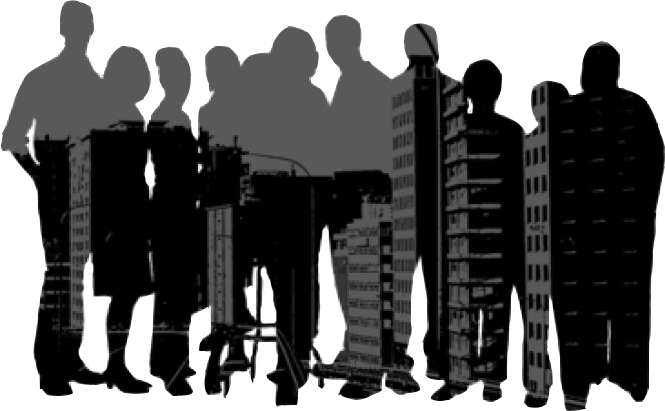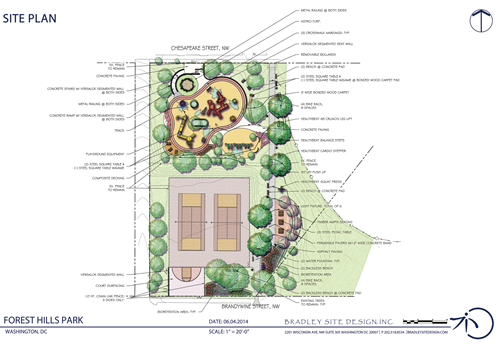What do urban fellows do?
“Fellowships are typically focused on a unique, identified need.” —Tom Burns, Urban Ventures Group, via Erika Poethig on Twitter
“A kind of Beginner’s Mind is a great advantage for an urban fellow to break out of a city’s customary patterns and status quo.” –Douglas Scarboro, former Chief Learning Officer and SC2 fellowship host, City of Memphis, now vice president of the Memphis branch of the Federal Reserve Bank of St. Louis
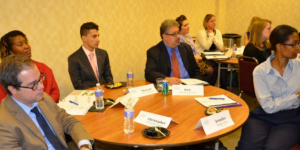
“Capacity is ‘a mile wide and inch deep’ in Detroit. We have lots of organizations with not enough capacity.” –Joshua Elling, Executive Director at East Jefferson Business Association, DRF host
Urban fellows work to enhance or add to capacity in their host organizations and cities. Simply defined, capacity is an entity’s ability to fulfill its goals through its resources and capabilities.
Resources can be tangible (funding, facilities, physical assets, and technology) or intangible (reputation, trust, staff experience and knowledge, and other forms of expertise).
Capabilities focus and convert resources toward specific ends. An organization’s or government agency’s capabilities can be either operational (the status quo or baseline capabilities) or dynamic (those that alter the resource base of an organization or agency).
Urban fellows work on projects to identify, build, replenish, or create wholly new resources or capabilities in their host organizations–and, by extension–in the communities those organizations serve. This can mean mapping and inventorying available resources; creating or updating a plan, or carrying out key aspects of it; modifying an existing operation to be more efficient; creating a new system or process to improve its use; or identifying cost savings or new resources; or establishing and maintaining partnerships or collaborations.
“My role as a fellow was initially designed to write grants. In order to be successful in securing public and private funding the entity seeking funds must have trusted leadership in place, a system for completing projects, and an infrastructure for collaborative action. Chester was just beginning that journey when I arrived. My role evolved into developing the system for enabling the City to successfully engage and develop partnerships which include funding agencies.” – Arto Woodley, Jr., SC2 Fellow, Chester, Pennsylvania.
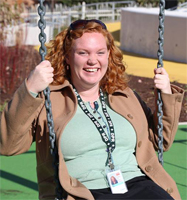
In Washington, D.C., Capital City Fellows rotate through up to three city agencies during their term. During her 2012 fellowship, Stacie West worked with the District Department of the Environment (DDOE) on the Mayor’s Sustainable DC Plan, and then with the Department of Parks and Recreation (DPR) on Play DC, a mayoral initiative to renovate all of the District’s playgrounds.
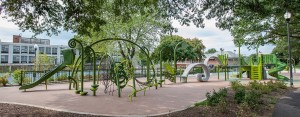
“As one of the representatives for the City Office of Workforce Development/JOB1 to the collaborative, I was invited to help conduct interviews of applicants interested in the training program….When I entered the Strong Cities Strong Communities Fellowship, I had no background at all in the world of workforce development. However, I relished the opportunity to talk about putting money in people’s pockets, and potentially interrupting cycles of generational poverty. As I reflect on the last two years, I am most proud of the capacity that I have built within the Office of Workforce Development….I have lent my womanpower to many efforts, ranging from job fairs seen by thousands of people, to community information sessions about opportunities with the recently reopened hospital in the New Orleans East community, to endless internal strategy sessions to support local hiring efforts.” -Annette Hollowell, SC2 Fellow, New Orleans, Louisiana.
“When I started as a fellow in September of 2012, the conditions of the Financial Stability Agreement dictated much of my project work….My primary project…was to develop a centralized grant management system for the City of Detroit. Making continual progress toward this objective was difficult in the midst of this uncertainty, especially because there was extremely high employee turnover. Nonetheless, I was able to accomplish a few secondary projects. Two key examples came to mind: coordinating the Adopt-a-Park Program and developing the Water Fund for assisting Detroiters with their water bills. Both were projects that brought significant challenges, had very short time frames for execution, and required an impressive collaborative effort to achieve. The projects had very different impetuses and goals but both led to a cascade of related tasks and problems to solve.” -Betsy Palozzola, SC2 Fellow in Detroit.
“In the Department of Economic Development, my main role [was] to coordinate the selection of a vendor and oversee the implementation of a new branding initiative and website for the Department. In addition, I am working with the Mayor’s communications office and the Director of Economic Development to create a social media strategy to inform and engage our target audience and the general public.” – Genna Petrolla, SC2 Fellow in Cleveland.
“Don’t just assume that a distressed city needs a clean slate. Detroiters have been doing good work for decades. —Graig Donnelly, director of Detroit Revitalization Fellows, via Twitter
View “My Detroit Hustle” from DRF, a quintessential narrative in which the fellows describe how their own businesses, passions, and projects dovetail with their fellowship work.
My Detroit Hustle / Detroit Revitalization Fellows from Iron Coast on Vimeo.
